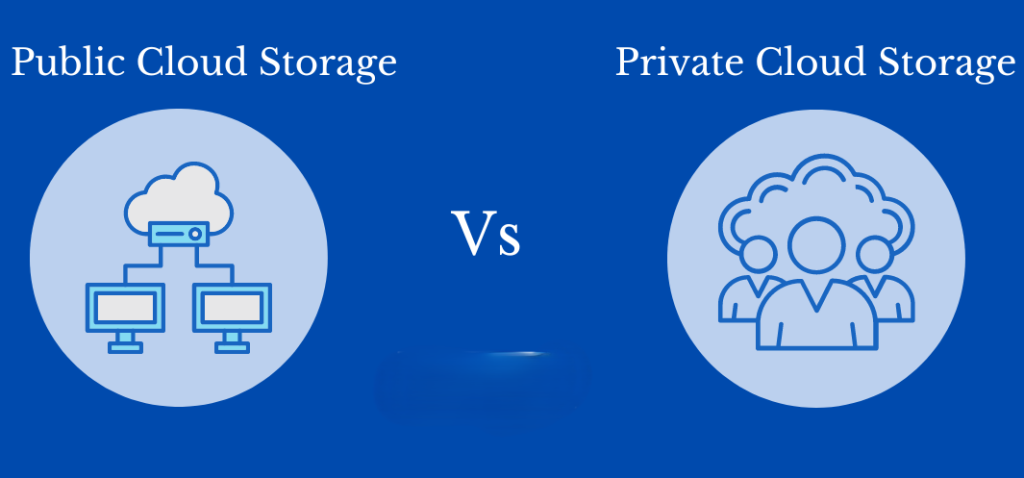The Pros and Cons of Different Types of Cloud Storage Platforms

In today’s digital era, with data dominance and essential mobility, cloud storage is crucial for business success. Small business owners and tech enthusiasts have numerous options, offering a mix of file-sharing, security, and collaboration tools. However, understanding each platform’s features is key. Discover the best cloud storage platforms for you with a brief overview of their advantages and disadvantages.
Understanding the Different Types of Cloud Storage

Two major types of cloud storage include public cloud storage and private cloud storage. Following are the pros and cons of both these types.
Public Cloud Storage

Public cloud storage offers services over the internet with storage capacity and resources shared across numerous users. This can be an ideal solution for small businesses looking to scale rapidly or tech enthusiasts who crave flexibility and accessibility. Key providers include Amazon Web Services (AWS), Microsoft Azure, and Google Cloud Platform.
Pros of Public Cloud Storage:

- Scalability: Immediate access to a plethora of resources that can scale with your business needs.
- Cost-Effective: Typically pay-as-you-go pricing models, with low initial costs.
- Minimal Maintenance: Service providers handle system updates, maintenance, and security.
Cons of Public Cloud Storage:

- Security Concerns: Data stored within a shared environment, which can raise security issues.
- Performance Variables: The performance of public storage can vary due to the shared infrastructure.
- Vendor Lock-In: Switching providers may be complex and costly, tying you down to one ecosystem.
Private Cloud Storage

Private cloud storage is dedicated to a single organization, providing similar scalability and performance to public cloud options. For small businesses with sensitive data, compliance requirements, or a need for customizability, private cloud solutions like OpenStack or Microsoft Azure Stack can be appealing.
Pros of Private Cloud Storage:

- Enhanced Control: You have complete control over your data and can tailor the environment to your specific needs.
- Improved Security: Customizable security measures enable better protection, which can be crucial for compliance.
- High Performance: Resources are not shared, leading to more consistent and potentially higher performance levels.
Cons of Private Cloud Storage:

- High Initial Cost: Building and maintaining a private cloud can require substantial upfront investment.
- Staffing Requirements: You’ll need in-house or contracted staff to manage and maintain the infrastructure.
- Reduced Flexibility: Not as versatile or quickly deployable as public cloud solutions.
Which Cloud Service Is More Cost-Efficient for Small Businesses?

The cost-efficiency of cloud services depends on various factors, including your business’s specific needs, usage patterns, and available budgets. Generally, small businesses starting from scratch might find public cloud services to be more affordable initially, while those with existing IT infrastructure might benefit from a private cloud investment in the long run.
Register with Blomp Today for 200 GB of Free Cloud Storage!
Blomp provides an impressive 200 GB of cloud storage absolutely free. If you find yourself in need of additional space, our premium plans offer up to 10TB of storage. Access your files effortlessly with our apps for Windows, Mac, Linux, iPhone, and Android. Ensuring your privacy is paramount, with the latest security measures in place to keep your data securely yours.
